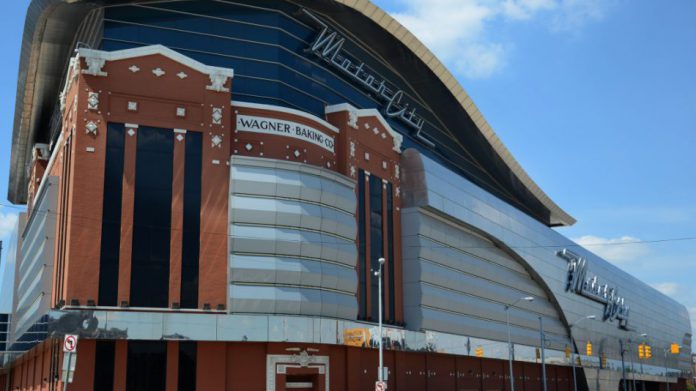Michigan’s three casinos have reported slight declines through the month of April after maintaining momentum from the past year into 2023 with a strong start to the year.
Revenue through the month dropped 7.6 per cent to $109.7m (2022: $118.73m), with the three establishments reporting downfalls in table games and slots to $109.6m (2022: $116.86m) and sports betting to $120,350 (2022: $1.87m).
April’s table games and slots revenue dropped 6.2 per cent compared with the same period one year earlier, while total revenue declined 6.9 per cent contrasted to the previous month.
Furthermore, during the year-to-date, table games and slots revenue is less than one percentage point (0.8 per cent) down during the first four months of the year when compared with one month earlier.
The venues maintained their usual places in the standings, with MGM Grand Detroit on top with revenue of $50.2m, however, this is down 11.5 per cent year-on-year from $56.76m. A market share of 46 per cent was held by the property.
MotorCity Casino came in next with a 6.1 per cent revenue drop to $34.2m (2022: $36.42m) to secure a market share of 30 per cent.
Hollywood Casino at Greektown, the only one of the three to secure a revenue uptick YoY, rose 6.3 per cent to $25.2m (2022: $23.68m) for a 24 per cent share
During the month, the three Detroit casinos paid $8.9m in gaming taxes to the state of Michigan, compared with $9.5m for the same month last year. The trio also submitted $13m in wagering taxes and development agreement payments to the city of Detroit.
Elsewhere, the Michigan Gaming Control Board noted that “due to a patron successfully winning $2.6m at MotorCity Casino placing parlay wagers, retail sports betting qualified adjusted gross receipts were down by 93.6 per cent in April compared with the same month last year”.
April QAGR per casino saw Hollywood Casino at Greektown lead the way with $1.4m (2022: $912,513, ahead of MGM’s $432,195 (2022: $405,385) and, as alluded to, MotoCity’s negative $1.7m (2022: $552,841).
The casinos reported $15,3m (2022: $24.78m) in total retail sports betting handle, with total gross receipts at a loss of $14,489 (2022: $1.9m).
During April, they also paid $69,237 (2022: $70,714) in taxes to the state and reported submitting $84,624 (2022: $86,428) in taxes to the city of Detroit based on retail sports betting revenue.
During March, fantasy contest operators reported total adjusted revenues of $2.1m (2022: $984,560) and paid taxes of $177,504 (2021: $82,703).
For the the first quarter, fantasy contest operators reported $6.8m in aggregate fantasy contest adjusted revenues and paid $572,626 in taxes.










